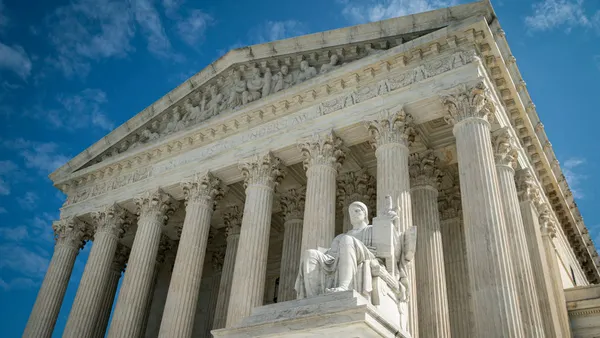Dive Brief:
- Positive workforce drug-testing results hit a 14-year high in the U.S. in 2018 with a positivity rate of 4.4%, according to the findings of a Quest Diagnostics analysis released last week. The 4.4% mark is the highest rate since 2004's positivity rate of 4.5%, and is 25% higher than the 30-year low of 3.5% recorded between 2010 and 2012, the clinical lab provider said.
- The analysis showed marijuana remains the most commonly used of all illicit substances, with a near 8% increase in positive urine test results in the general workforce and nearly 5% in the federal workforce. The company's results showed marijuana use has only continued to increase, Barry Sample, Quest Diagnostics' senior director of science and technology, said in statement. "As marijuana policy changes, and employers consider strategies to protect their employees, customers and general public, employers should weigh the risks that drug use, including marijuana, poses to their business," Sample said.
- But positive drug-testing rates decreased across all opiate categories and all workforce categories, according to Quest. Positivity for opiates like codeine and morphine declined nearly 21% between 2017 and 2018, while positivity results for heroin declined by 6%. The index found a rise in urine specimens reported as invalid, suggesting there may have been more attempts to skew test results, Quest said.
Dive Insight:
The analysis shows an uptick in marijuana test results during a timeframe in which a number of states have legalized the recreational and/or medical use of marijuana. But employers must still note the drug remains a Schedule I controlled substance under federal law.
With marijuana's expanding legalization, employers' duties to abide by their jurisdiction's laws and maintain a safe, drug-free work environment may come into conflict. There are several considerations and important exceptions under state laws for HR to note. Some employers have decided to simply opt out of testing for marijuana altogether, according to a Bloomberg report. A separate report from background check provider First Advantage showed most employers survey said they wouldn't or couldn't hire someone who tested positive for marijuana use.
One area of drug policy that employers might want to be particularly careful of is within the hiring process. Last year, a federal district court upheld a Conneticut state law prohibiting employers from failing to hire people because they use marijuana for medical purposes. Employers must be careful about interfering with workers' marijuana's use offsite and on their own time, but their drug policies can forbid the use of marijuana at the worksite even in states with such laws.










